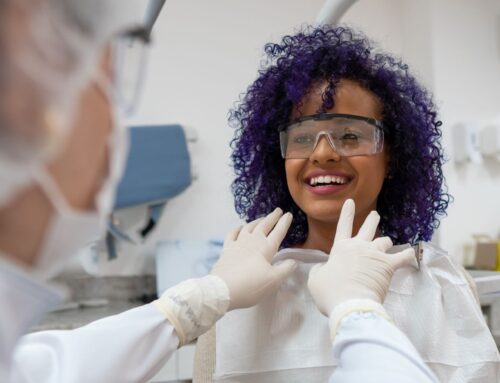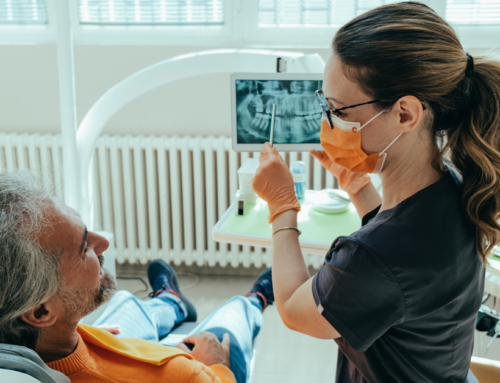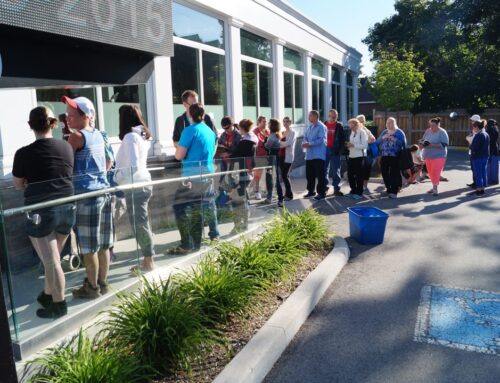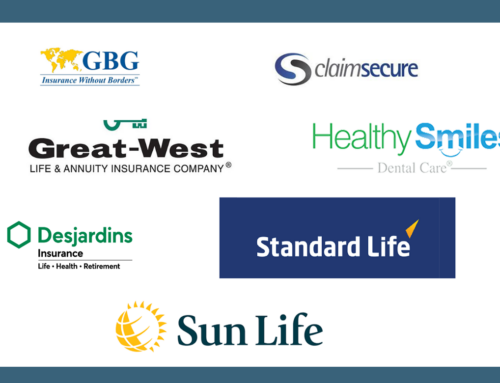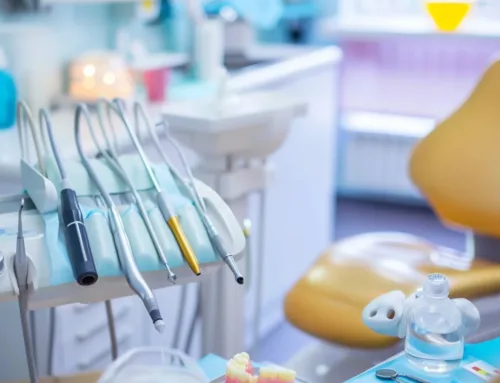Dental Care for Low-Income Seniors in Ontario
Our mouths act as the gateway to our bodies. By caring for our teeth, we can minimize potential infections, sensitivities or pain that can impact vital daily functions like eating, drinking, chewing, swallowing or biting.
As we age, maintaining our oral health becomes very important. Seniors need access to the very best dental care but often can’t afford it because they are on a fixed income or can’t overcome the barriers to access. Many have lobbied for better dental care for low income seniors but to date resources are limited.
To help you navigate these programs, we’ll demystify Ontario’s dental care offering for low income seniors. We’ll review what is believed to be the most comprehensive resource and its limitations. Lastly, we’ll offer advice on how to approach situations where seniors require more advanced care than regular checkups and cleanings.
Challenges to Low-income Seniors
As you can imagine, seniors face daily challenges to receiving health and dental care. There are mobility issues, health restrictions, dietary considerations and, of course, limited finances.
When many Ontarians retire, they must adjust to living on a fixed budget or must supplement their low income with a government sponsored pension. In some cases, they are fully reliant on a social insurance program like the Canada Pension Plan.
Additionally, caring for a low-income senior can be difficult. There is a lot to know and it can be easy to get confused by all the bureaucratic red tape. Complicating matters is that oral health programs often feel like an afterthought, barely marketed and poorly communicated. If dental care is a blind spot for each level of government, it is magnified when it comes to low income seniors and their caregivers.
The programs offered by the provincial government can be helpful but only if you meet the criteria. This challenge is exacerbated for seniors that require specialized care.
Ontario Seniors Dental Care Program
Ontarians are not covered for the majority of dental services under OHIP. Most receive coverage from purchasing dental insurance products on their own or via a group benefits plan offered by their employer.
If you are age 65 or older and fall into a certain financial bracket, there is the Ontario Seniors Dental Care Program, which offers free access to routine care.
Per the Ontario Oral Health Alliance, low-income seniors and long-term care home residents are at the greatest risk of serious oral health problems. When you consider the barriers that exist like cost and transportation, the situation becomes that much direr.
Coverage
This program is designed to mainly cover routine care, which is defined as:
- Checkups (scaling, fluoride and polishing)
- Repairing broken teeth and cavities
- X-rays
- Tooth extractions
- Anesthesia
- Treating infection or pain
- Treating gum issues or diseases
If you are eligible for the program and experience issues that are not covered, you might have to pay out of pocket to a dentist. It’s recommended to discuss your situation with your local public health unit and to even reach out to private clinics to see what they offer.
Dentures
Many seniors require dentures to mitigate the negative effects of missing teeth. Under the Dental Care for Low Income Seniors Program, dentures are only partially covered. Again, it’s a good idea to contact your local public health unit for additional information about a specific situation.
Eligibility
To be eligible for this program, you must:
- Be age 65 or older
- An Ontario resident
- Have an annual net income of $19,300 or less for a single senior
- Have a combined annual net income of $32,300 or less for a couple
- Have no other form of dental benefits. This includes private insurance or coverage stemming from another government assistance program.
Lastly, you will need to provide your Social Insurance Number during the application process.
Coverage Details
For those accepted into the program, coverage lasts for up to one year. It will end on July 31st every year regardless of one’s enrollment date.
Renewing your coverage is simple. Eligibility is automatically verified and, if approved, enrolment will be confirmed for the next benefit year. Participants are notified by mail if they are eligible or about reapplying.
Participant must reapply if they are using a guarantor or if they did not file taxes for the tax year for when eligibility is being determined.
How to Apply
You can apply either by mail or online. Each person must apply individually, meaning a married couple cannot submit one application.
To apply, you will need:
- Your date of birth
- A valid Ontario address
- Social Insurance Number or Temporary Taxation Number
- Must have filed taxes for the previous year
If you require a guarantor for whatever reason, you can review and complete the Ontario Seniors Dental Care Program Application Through Guarantor Form.
The list of accepted guarantors include practicing members of the following professions or those that are in good standing with a provincial regulatory body:
- Physician or surgeon
- Nurse
- Dentist or dental hygienist
- Optometrist
- Pharmacist
- Psychologist
- Chiropractor
- Midwife
- Veterinarian
- Lawyer
- Professional accountant
- Engineer
- Social worker or social service worker
- Teacher, principal, vice-principal in either a primary or secondary school
- Dietitian
- Judge or Justice of the Peace
- Municipal, provincial or First Nations police officer or constable
- Mayor
- Legislative Assembly of Ontario member
- Minister of religion
- Municipal clerk or treasurer – Must be a member of the Association of Municipal Managers or Clerks and Treasurers of Ontario
- Notary public
- University professor
- Community college senior administrator
- Signing officer of a bank
This program is considered by many to be the best available resource for low-income seniors. While there are gaps in its coverage, it does make many important dental services available to seniors who otherwise could not afford them.
Program Pitfalls
No program will meet the needs of every citizen and it’s important to recognize the flaws of this particular one so applicants can plan accordingly. The main issue is that there is a strict income cap, which will exclude seniors from eligibility even though they don’t have the means to afford even basic dental services.
Overall, there is a lack of funding for this program, which could curtail the number of seniors who could benefit from it. Additionally, access is limited because many private clinics do not partake.
Seniors living in rural Ontario might also have trouble finding a public health clinic or community health centre due to the lack of infrastructure.
This program was set to expand in 2019 but, as of now, no details have been provided.
Treating Severe Issues
In addition to the above mentioned dental services, this program can include x-rays, extractions and certain urgent or emergency care situations. Cosmetic dentistry like teeth whitening and braces are not covered.
To learn if your dental issue is covered, you can contact one of the following INFOlines:
- Toll-free: 1-844-296-6306
- Toll-free TTY: 1-800-387-5559
- TTY: 41-327-4282
Appointment Request
If you’re interested in any of our procedures, and would like to meet with one of our dentists to discuss options, costs and get additional information, complete this short form and we’ll give you a call to arrange for a no-obligation appointment at our Barrie clinic.


